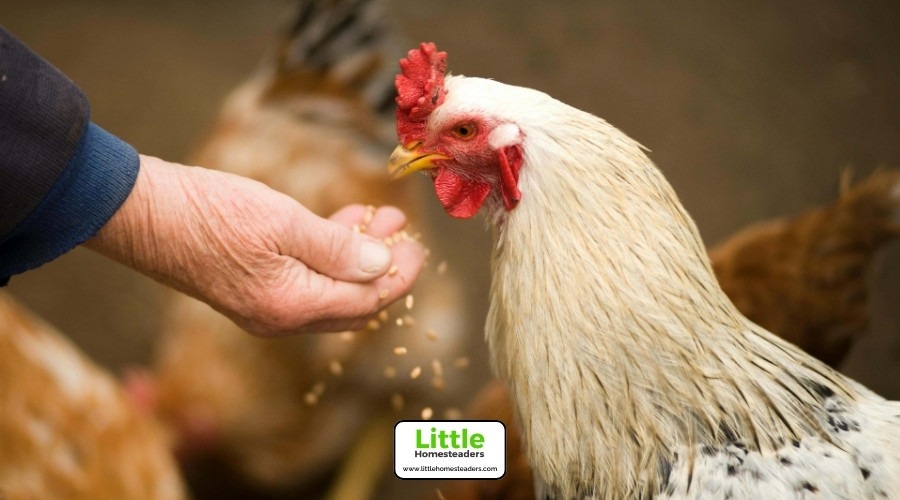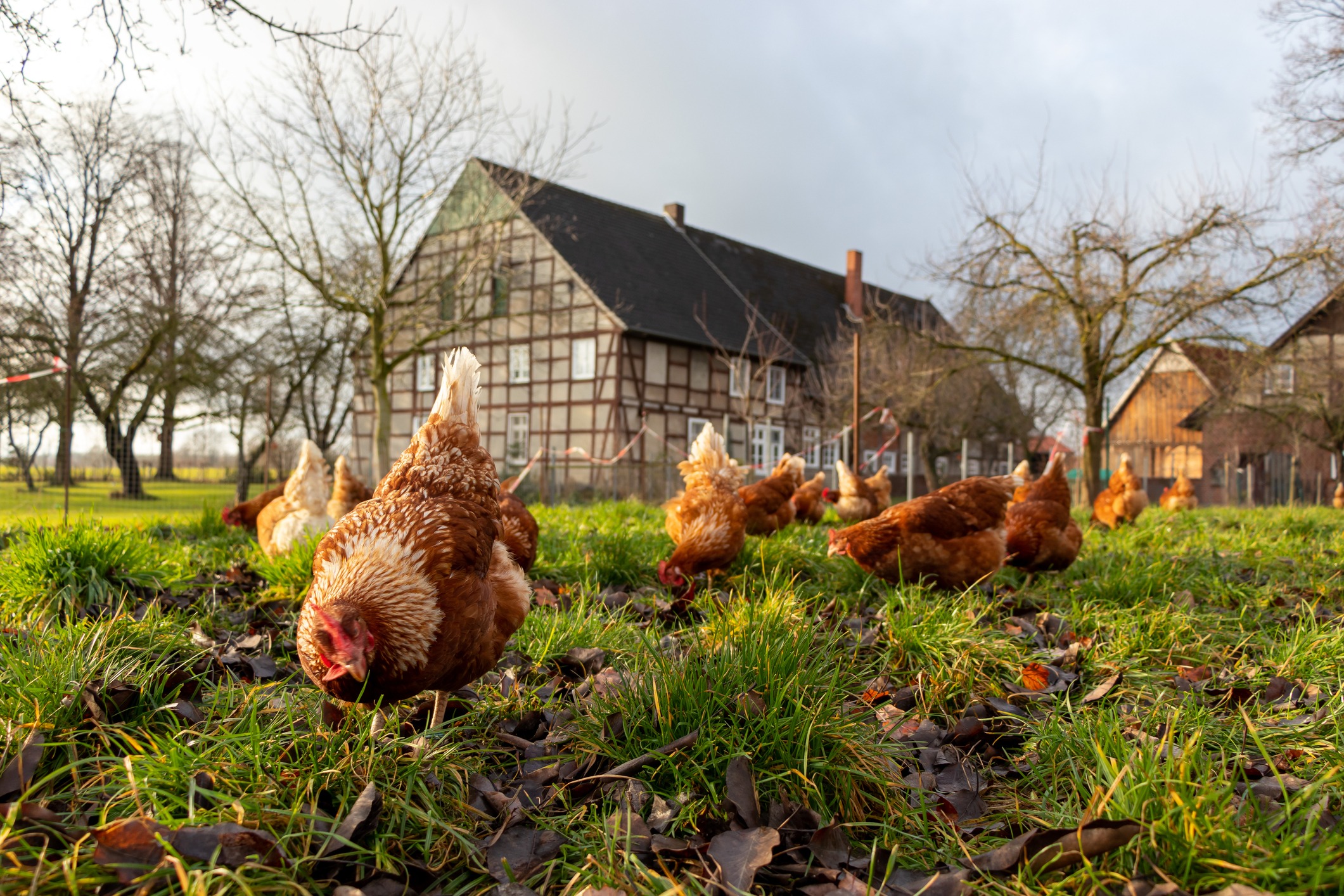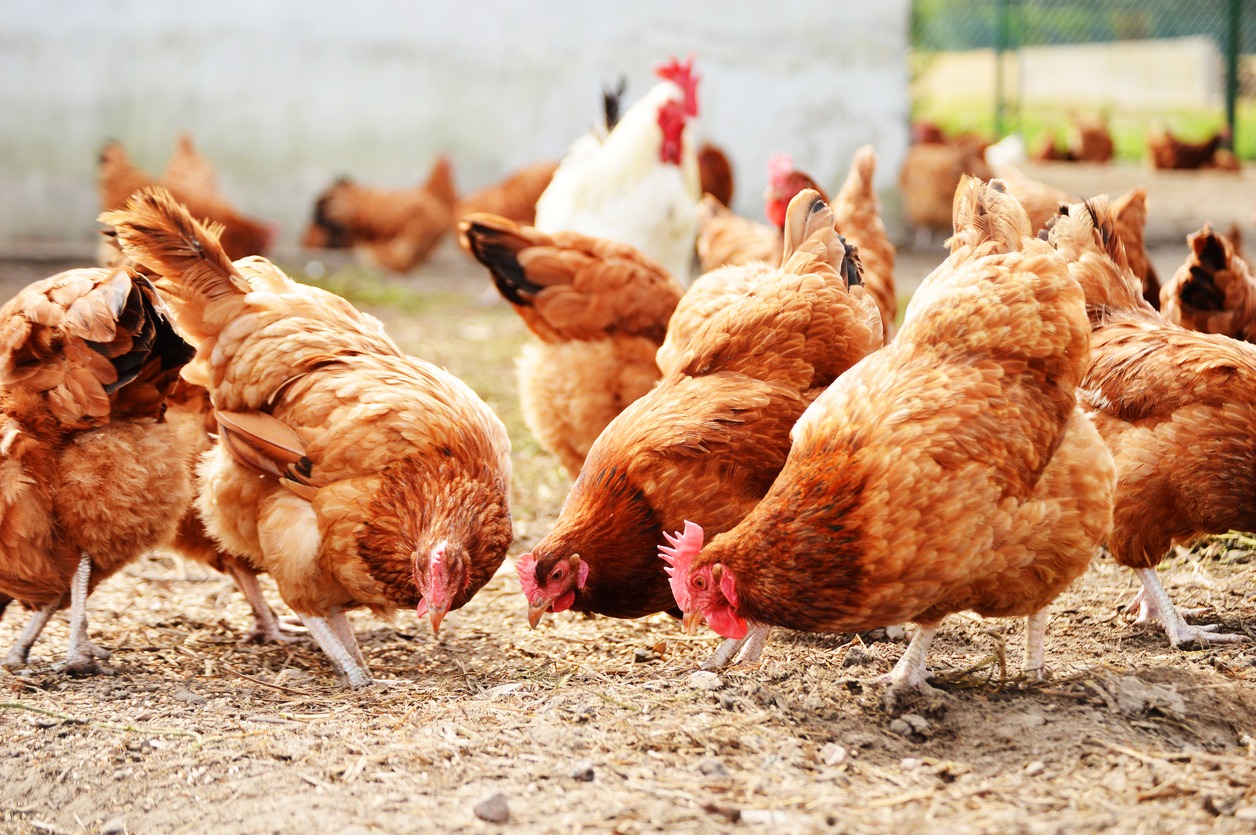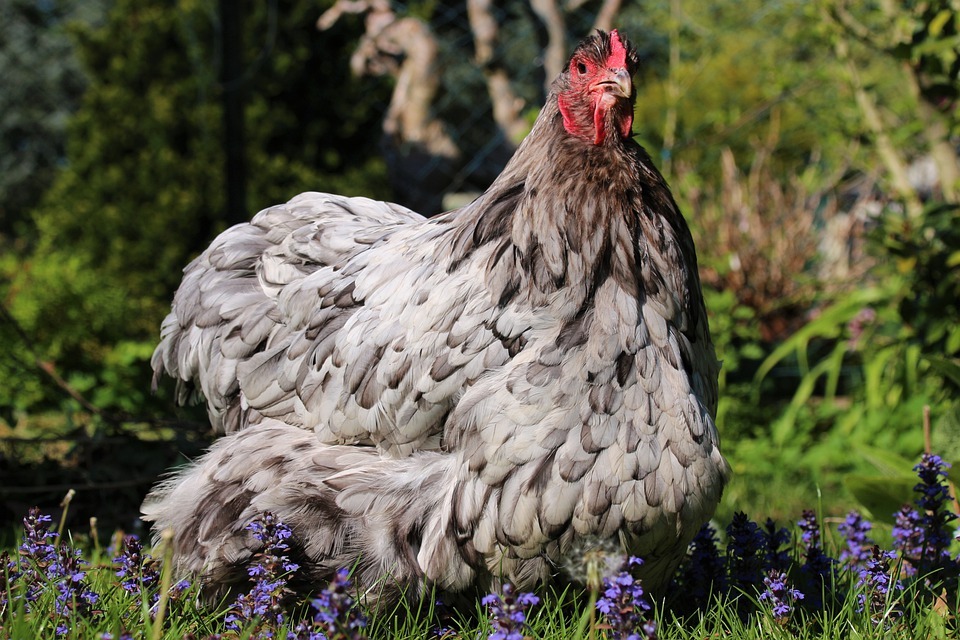What Is a Broody Hen, and Should You Let Her Hatch Eggs?
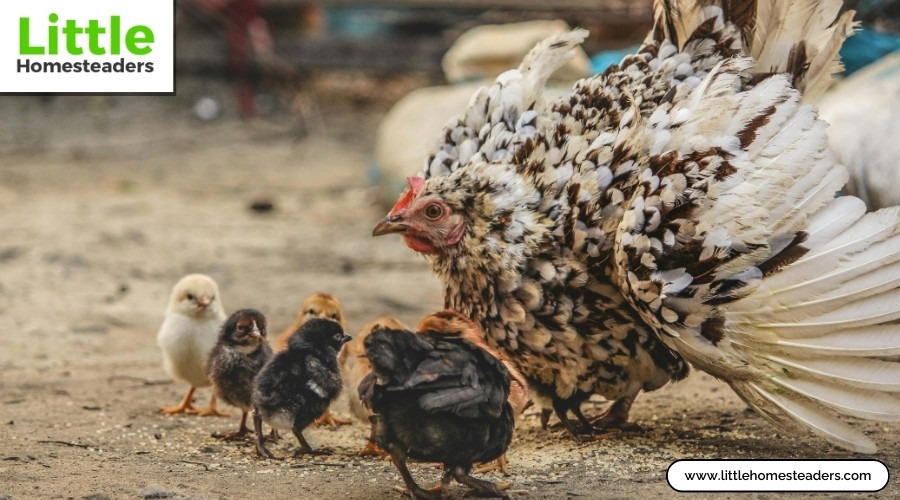
For backyard chicken keepers, the concept of a broody hen can spark equal parts fascination and frustration. One day, your reliable layer is clucking around the yard; the next, she's tucked away in the nesting box, fiercely determined to hatch a clutch of eggs. So, what exactly is a broody hen, and how should you handle her?
A broody hen is a chicken overtaken by hormones and instinct to sit on eggs until they hatch. This natural behavior can be endearing, challenging, or even inconvenient, depending on your goals as a chicken keeper. Understanding the nuances of broodiness can help you decide whether to let your hen fulfill her motherly mission or to gently redirect her efforts.
Understanding Broody Hen Behavior
Broodiness is driven by a combination of hormones and instinct. It's nature's way of ensuring the survival of the species, as a broody hen dedicates herself to incubating eggs and raising chicks. While the behavior is remarkable, it can throw a wrench into your flock's routine.
When a hen goes broody, her behavior changes dramatically. She refuses to leave the nest, sitting on eggs—her own or others'—and puffing up defensively if you get too close. Broody hens often pluck feathers from their breasts to create a warm, skin-to-egg contact, optimizing conditions for hatching. Their combs and wattles pale as they eat and drink less, focusing all their energy on incubation. The hallmark of broodiness is the infamous "broody poop"—large, infrequent, and pungent.
Not all chicken breeds are equally prone to broodiness. Breeds like Silkies, Orpingtons, and Cochins are famous for their mothering instincts, while high-production layers like Leghorns and Rhode Island Reds are less inclined. Knowing your flock's tendencies can help you prepare for or avoid dealing with broodiness.
Signs of a Broody Hen
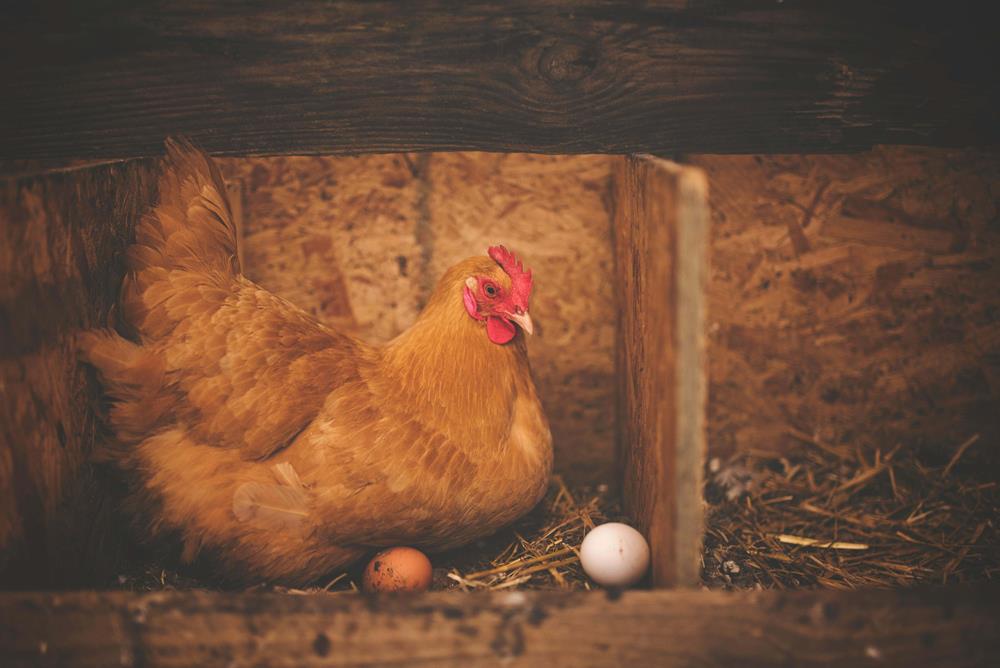
How can you tell if a hen has gone broody? Here are some telltale signs:
- She Refuses to Leave the Nest A broody hen will spend most of her time in the nesting box, often hunkered down on a clutch of eggs. She may cluck or growl at you if you approach.
- She's Protective You'll notice her puffing up her feathers and making warning noises. She'll likely peck at your hand if you try to remove her from the nest.
- She Stops Laying Eggs Broody hens stop laying and focus entirely on incubating eggs. If you've noticed a sudden drop in egg production, a broody hen could be the culprit.
- She's Pulled Out Feathers Broody hens often pluck feathers from their breasts to expose warm skin for better heat transfer to the eggs.
- Her Behavior is Consistent If you remove a broody hen from the nest, she'll usually return immediately. This persistence distinguishes true broodiness from temporary nesting.
Pros and Cons of Broodiness
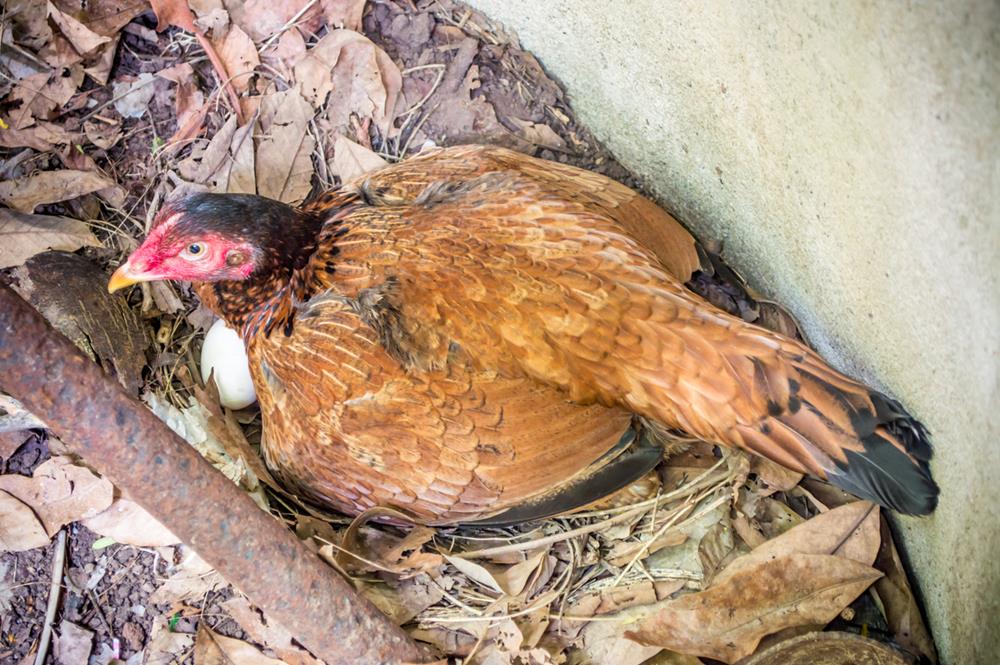
Before deciding whether to let your hen hatch eggs, it's important to weigh the benefits and challenges.
Pros
- Natural Mothering: Broody hens are excellent mothers, keeping chicks warm and teaching them essential skills like foraging and flock integration.
- Higher Hatch Rates: Hens often achieve better hatch rates than artificial incubators because they naturally regulate temperature and humidity.
- Cost-Effective: You won't need an incubator, brooder, or heat lamp when a hen raises chicks.
A mother hen also provides invaluable socialization for chicks. They learn flock dynamics and behaviors naturally, making their integration smoother. Additionally, observing a hen raise her brood can be a deeply rewarding experience for chicken keepers, as it showcases the beauty of natural instincts.
Cons
- Disruption to the Flock: Broody hens can upset flock dynamics, monopolizing nesting boxes and becoming more territorial. This may lead to squabbles among your other hens.
- Reduced Egg Production: While broody, hens stop laying eggs, impacting your overall yield. If egg production is a priority, this could be a significant drawback.
- Logistical Challenges: You'll need to manage the hen's health, separate her if necessary, and prepare for the care of chicks.
Some broody hens may also become overly aggressive, which can be stressful for the flock and the keeper. If you have limited space or resources, these challenges may outweigh the benefits.
Preparing for Egg Hatching
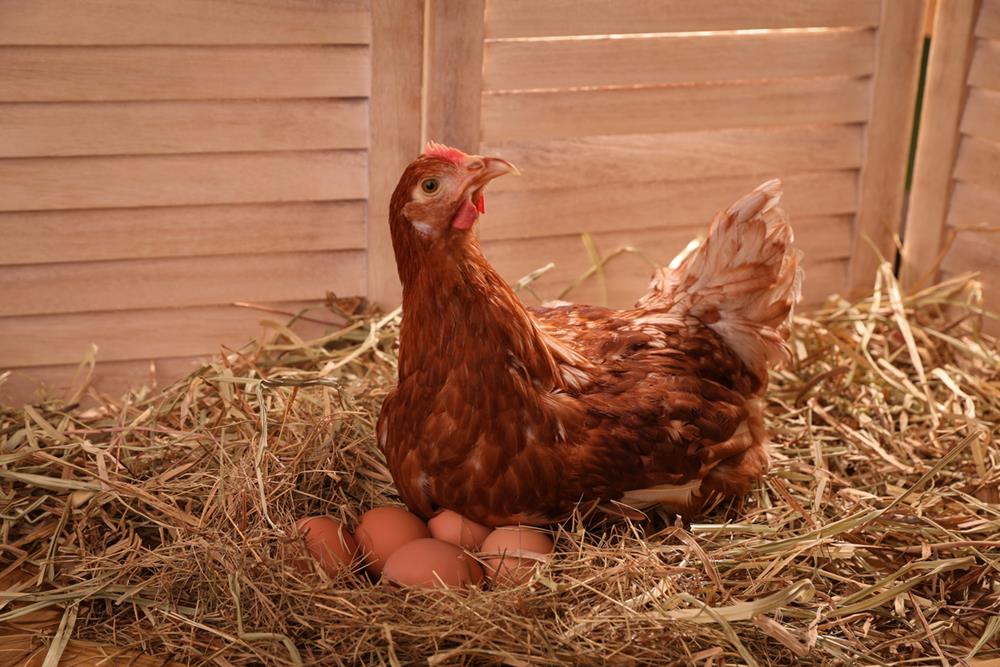
If you've decided to let your broody hen hatch eggs, preparation is key. Here's what you'll need to do:
Set Up a Dedicated Nest
Choose a quiet, safe spot for your hen to sit. A nesting box at ground level works well, filled with soft bedding like straw or shavings. Keep other hens from adding eggs to the clutch by isolating the broody hen if necessary.
Ensure the nesting area is predator-proof and away from high-traffic areas. A broody hen needs peace and security to focus on incubation without disturbances.
Collect Fertile Eggs
If you have a rooster, some of your eggs may already be fertile. Gather these and store them at room temperature (not the refrigerator) until you're ready to give them to the hen. Mark them with a pencil to distinguish them from newly laid eggs.
Hens can also hatch eggs from other breeds or even species like ducks. However, keep in mind the specific needs of the hatched chicks when introducing non-chicken eggs.
Monitor the Incubation Process
Over the 21-day incubation period, your hen will do most of the work. Ensure she leaves the nest briefly for food and water daily. Keep food and water nearby to make it easy for her.
You may need to gently encourage her to take breaks if she seems too dedicated, as prolonged sitting without eating or drinking can harm her health. Clean the nest area regularly to prevent disease.
Caring for a Broody Hen
Broody hens can lose weight and condition during incubation, so it's important to support them.
- Provide Nutritious Feed: Offer a balanced diet with layer feed, and consider adding some high-energy treats like sunflower seeds or mealworms.
- Keep the Nest Clean: Regularly check the nesting area and remove any soiled bedding or non-developing eggs.
- Monitor Health: Watch for signs of excessive weight loss, dehydration, or parasites.
In addition to physical health, monitor her behavior. If she seems overly stressed or lethargic, consult a vet or an experienced chicken keeper for advice.
Managing Chicks After Hatching
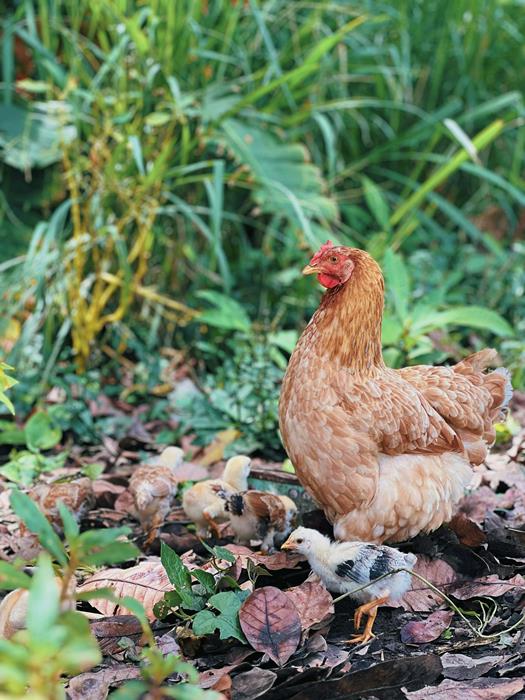
When the chicks hatch, the hen will take over much of their care. She'll teach them to eat, drink, and stay safe. However, you'll still need to:
- Provide a Safe Space: Ensure the brooding area is secure from predators and other flock members.
- Offer Appropriate Feed: Transition to chick starter feed, which both the hen and her chicks can eat.
- Gradually Introduce Them to the Flock: When the chicks are a few weeks old, allow supervised interactions with the flock to ease integration.
Chicks raised by a hen tend to be more independent and hardy than those raised in artificial brooders. However, they may be less accustomed to human handling, so spend time with them to build trust.
FAQs About Broody Hens
- Can a broody hen hatch eggs from other breeds or species? Yes! Broody hens can incubate eggs from other chicken breeds or even different species like ducks. Be mindful of the different needs of non-chicken chicks.
- What if my broody hen abandons the nest? If a hen abandons her eggs, you can move them to an incubator to finish hatching. Quick action is essential to save the developing embryos.
- How many eggs can a broody hen sit on? Most hens can comfortably incubate 8-12 eggs, depending on their size. Overloading her can lead to uneven incubation and lower hatch rates.
- Can I stop a hen from being broody? Yes, techniques like "breaking" broodiness include removing her from the nest and placing her in a wire-bottom cage to cool her off. This disrupts the hormonal cycle that triggers broodiness.
- How long does broodiness last if left unchecked? Without intervention, broodiness can last several weeks. However, if no eggs hatch, the hen may eventually abandon the nest on her own.
Conclusion
Broody hens can be challenging to handle, but the key is preparation and understanding. With the right approach, you can support your hen's instincts while maintaining the health and harmony of your flock. Observing this natural process can be a rewarding experience, offering a deeper connection to the rhythms of nature and the joy of raising new life.

